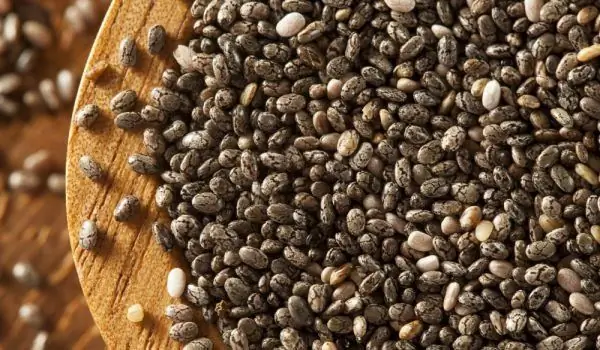2025 Author: Jasmine Walkman | [email protected]. Last modified: 2025-01-23 10:18
Every day we need calcium to enter our body. In addition to being a fundamental mineral for bone strength, our body uses it for the proper functioning of the heart, blood, muscles and nerves. Without the necessary amount of calcium intake, our body will suck it from the bones where it is stored. This, in turn, can lead to weight loss and easier trauma.
It is estimated that 55% of men and 78% of women over the age of 20 in the United States do not get enough calcium in their daily diet. It is important to note that the human body cannot produce its own calcium, so it is especially important to consume foods that contain it.
The recommended amounts of calcium for adults are:
- For women between 25-50 years and menopausal women undergoing hormone replacement therapy: 1,000-1,200 mg of calcium per day. 1500 milligrams of calcium per day is recommended for pregnant or lactating women;
- For menopausal women but under the age of 65 without ongoing hormone therapy: 1500 milligrams of calcium per day;
- For men aged 25-65: 1000 mg of calcium per day;

- For all people (women and men) over 65 years of age: 1500 mg of calcium per day.
Calcium is especially common in dairy products and dark green leafy vegetables (broccoli, cabbage, spinach, Chinese cabbage). It is also good to eat more beans and peas, tofu, fortified with calcium, seeds, nuts and some fish. Many foods can also be sold with added calcium such as orange juice, baby cereals and bars.
Skimmed milk powder can be added to many baby foods and confectionery, and is also a way to get more calcium.
An exemplary daily intake with a sufficient amount of calcium may look like this: in the morning we drink a tea cup of milk (250 ml), then eat half a cup of yogurt (200 g) and eat a piece of cheese (40 g).
It would be helpful to take calcium supplements if your daily diet cannot be changed or enriched to ensure adequate calcium levels. Although calcium supplements are available without a prescription, a healthcare professional (eg, physician, nutritionist, pharmacist) should help patients determine in what form and how much elemental calcium (varies in different products on the market) is best taken..
The absorption of calcium supplements is usually most effective at single doses of 500 mg or less. It is good to divide the intake between meals.
To enjoy healthy bones, eliminate or at least limit certain foods known to help you excrete more calcium than normal. Such enemy substances are sodium and chloride (found in table salt), as well as caffeine (absorbed mainly with coffee, tea and soft drinks).
Be careful not to be deficient in vitamin D. It helps the absorption of calcium from the gastrointestinal tract and its absorption in the kidneys, which would otherwise excrete it. It is known that, like calcium, most people do not get enough vitamin D. It is estimated that more than 50% of younger and older women do not consume the recommended amounts of vitamin D per day.
Recommended:
Chia (chia) - Benefits, Intake And Permitted Daily Dose

Chia (Salvia Hispanica and Salvia Columbariae) are small and hard seeds, the fruit of a plant that closely resembles sage, with extremely small sizes. In the beginning, the small seeds of the plant were grown as a decorative element, but after a number of studies it became clear that the seeds are a great source of nutrients for the body.
Daily Norm Of Magnesium, Calcium, Potassium, Selenium And Iron

Minerals are essential for good health. The human body uses over 80 minerals for its normal functioning. Every living cell is directly dependent on the minerals in the body, and they are responsible for its proper structuring and functioning.
Recommended Daily Dose Of All Vitamins And Minerals

Reading the labels of modern food products gives the impression that literally all food products, from bottled water to pastries, are enriched with vitamins and minerals. On the one hand, this does not sound bad at all, because everyone knows that insufficient amounts of vitamins and minerals can lead to health problems, and the diet of modern man often does not contain all the necessary ingredients.
Drink Mineral Water To Get The Calcium You Need

A new study by a team of researchers at the University of Leibniz in Hanover, Germany, proves that drinking mineral water can be a good way to get calcium along with milk and other dairy products. Scientists go even further in their claims by finding that mineral water can be an even better alternative than low-calorie milk or taking tablets that meet the daily amount of calcium needed.
It's Easier To Get Into Harvard Than It Is To Get Into McDonald's

Unbelievable, but it is a fact that it is much easier to be accepted at Harvard, which is considered to be the most prestigious university in the world, than at McDonald's University of Hamburgers. The training at the unusual university lasts only one week, but still only one percent of the students admitted to study there manage to get diplomas.

